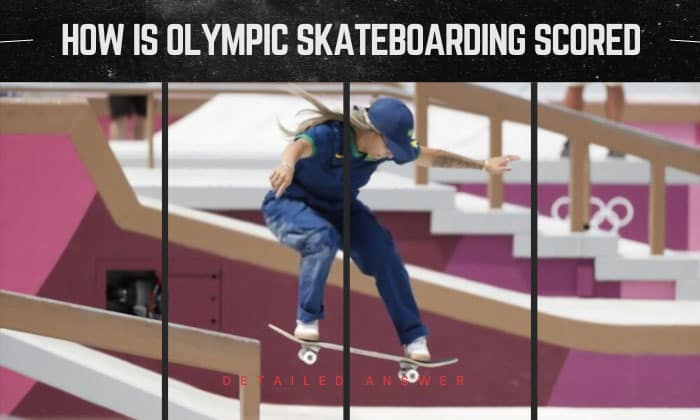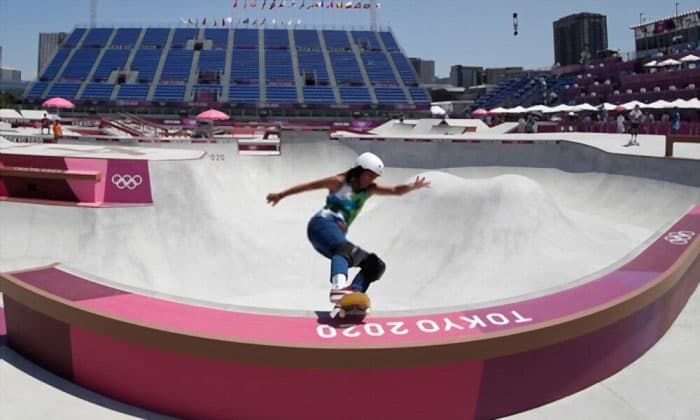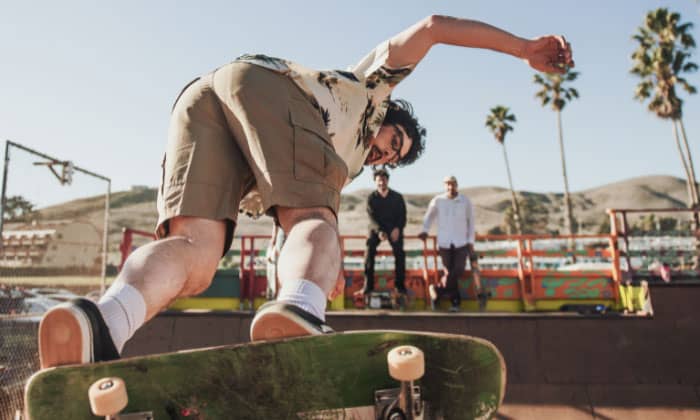In sports, players often win by being the fastest, earning the most points, or defeating their opponents physically. But in the recent 2020 Tokyo Olympics, a new event surfaced in skateboarding. In this sport, skaters do not race or directly grapple with their opponents.
Instead, players vie to earn the highest scores. So, how is Olympic skateboarding scored?
Judges cast their scores for the participants based on speed, balance, difficulty, and creativity. Keep reading as we tackle how these aspects affect the skater’s victory and defeat.
Table of Contents
How is Skateboarding Scored in the Olympics?
Unfortunately, the Olympics doesn’t award winners the way we obtain skateboard score Borderlands.
The Olympics is a significant event happening only once every four years. Hence, athletes treat it like it’s their last competition, aiming to give honor to themselves and their country.
Let’s see how the Olympic skateboarding results came about and if the same scoring system applies to Paris 2024.
Tokyo 2020
The sport has more than two categories and styles, but the Olympic skateboarding format only provides two for the competition: street and park.
1. Park skateboarding
20 men and women participants qualify for skateboarding Olympics. They come from various nations winning Olympic-qualifying tournaments.
The committee divides these participants into groups of five. Similarly, there will be five judges to rule the contest.
In every group, skaters have three 45-second chances to showcase their skills in a bowl-like arena with pump spots and ramps. At the end of each run, they earn a score within the range of 0-100 with two decimal places considered.
So, the player will receive 15 scores from three runs scored by five judges. But from each run, the committee will omit the highest and lowest scores.
Succeedingly, the tabulators will compute the average of the remaining three scores from each run. And with three runs performed, the highest will be the result.
After all skaters have competed, the top eight participants will be determined. They will move to the next round with the same scoring system applied.
2. Street skateboarding
Like the park skateboarding category, the street also separates 20 male and female participants into groups of five. Note that the women’s street skateboarding scoring is also the same as the men’s.
But in the Olympic street skateboarding scoring, skaters only have two 45-second chances to prove their proficiency on the rails and ledges. Plus, after the two runs, they must perform five tricks. So, one judge is to score seven times or rounds per participant.
The number of judges is the same as in the park category. Additionally, participants can only earn as much as 10 points per run or trick execution.
All in all, the skater will earn 35 scores from seven phases awarded by the five judges. But of these results, the committee will disregard the highest and lowest scores per element, leaving the rest for average computation.
The tabulators will compute the average of the three remaining scores for each run and trick. Subsequently, they will add the four highest average scores out of the seven elements. And that is how they’ll determine the participant’s final score.
Out of 20 skaters, only eight will advance to the next round. The same scoring matrix will apply.
2024 Paris Olympics
Prospectively, here’s how participants will earn their scores to win the 2024 Olympics.
1. Park skateboarding
There seems to be no update yet on what will happen at the 2024 Olympics for skateboarding. Nonetheless, here’s a recap of how Olympic skateboarding judged the winners in 2020 and what could happen in the next Olympic season.
In the park skating category, participants get three 45-second rounds to dodge a diverse skate bowl. The goal is to build up speed and depart the obstacle for aerial tricks.
So, judges score them based on their speed, ability to check all the obstacle’s corners, and height.
Skaters advance to or miss the next round based on their best score in three runs.
2. Street skateboarding
Street skateboarding has the most recently announced update for athletes.
One of its significant changes is the scoring range extending from 0-10 to 0-100 per element. But how do we apply this scoring matrix?
Like the 2020 version, the Paris Olympics still implements the seven rounds of two runs and five tricks. However, the scoring now aims to be more inclusive and fair by highlighting both components of the category.
For the 45-second run element, skaters will have two chances to garner the best score. The committee will add the run with the higher score to the initial final score.
Next, the participant will perform five tricks, like the 2020 season. But of these five, the tabulators will only select the two best tricks with the highest scores. Then, they will add the two scores to the initial run result of the athlete.
Overall, the participant can earn as much as 300 points, 1/3 coming from the run and the rest from the tricks.
Olympic Skateboarding Rules
On top of the scoring guidelines in the 2020 and 2024 Olympic skateboarding, here are other competition rules we should also remember.
- Helmets are necessary for participants below 18 y/o.
- Skaters have pre-game practice and a 5-minute warm-up before the actual performance.
- Skaters can change or keep riding their skateboards in case they break.
- Injured players who advance to the next round shall have no replacement.
- Participants disqualified for misconduct open the grounds for a change of player.
- The rules for Olympic skateboarding dictate that interrupted participants can have the chance to restart due to external interference.
- Participants should start the run or trick within the 5-second allotted starting time.
Conclusion
Since the mid-19th century, skateboarding has grown in all aspects. It became innovative and inclusive. And now, the competition has already reached the Olympic arena. There might still be changes in rules in the upcoming seasons, but they’re all for the better.
Now that you know the answer to “how is Olympic skateboarding scored?” you can finally watch the competition and grade your own performance. Who knows, you might be the next skateboarding Olympian one day.

Hi, I am Charles Harris. I opened this site to write as much as I can about my biggest passion – skateboarding!
I started as a clumsy yet passionate rookie 10 years ago to now a still passionate yet much better skateboarder! But I have to tell you, the whole journey has always been fun and rewarding, indeed not without hardship.





